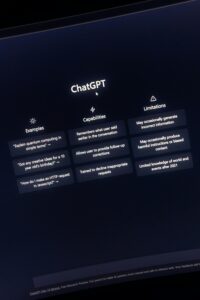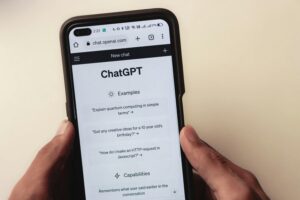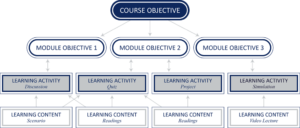
Designing Course Content for Screen Readers
One of the most common tools helping students with visual impairments navigate the digital world is the screen reader. These software programs convert text into

One of the most common tools helping students with visual impairments navigate the digital world is the screen reader. These software programs convert text into

A syllabus is a great way to provide students with the course purpose, an overview of assignments, and the rules of engagement that you will

Accessibility in the context of online learning means that all populations of students, regardless of disability, are able to perceive, understand, navigate, and interact with

Build a foundation for assessment ideation with AI using the 3Ps of Quality Prompting. Then, take your AI assessment brainstorm to the next level with

Assessment plays a vital role in online learning. It helps students track their progress, pinpoint strengths and areas for improvement, and ultimately ensures they meet

Generative Artificial Intelligence (AI) can provide faculty with an additional partner to ideate and brainstorm new and innovative authentic assessments in their online courses. These

Each page in your online course and every piece of content you create for your students is a chance for you to set the tone and climate, support discourse, and communicate your expectations. These pages and pieces of content represent “you” to your students, and they will look to these pages to help keep them engaged and encouraged.

Online courses must evolve as we learn more about how to combat inequalities in our classrooms. A commitment to diversity, equity, and inclusion in our courses is a commitment to student success.

In response to economic disparities, faculty can create more inclusive and equitable learning opportunities using open educational resources.

There are two key introductions for every online course: your personal intro and an introduction to the course. Below are some things to think about

What are some AI tools that you can incorporate into your online classroom to enhance student engagement, personalize learning, offer individualized feedback, and encourage additional

With the proliferation of AI tools, it can often feel overwhelming as new ones seem to emerge daily. Determining where to begin when integrating these

Teaching online classes can sometimes feel overwhelming due to the numerous tasks required to engage with students and manage your responsibilities effectively. Here are some

In an online course, the feeling of connection—known as “presence”—plays a key role in students’ success and satisfaction. It helps break the isolation of online

When thinking about how to enhance engagement in online classrooms, instructors often focus on making the material more exciting. They may wonder, “Should I add

AI can provide incredible opportunities for faculty hoping to improve their online courses quickly. To use AI effectively, all faculty should familiarize themselves with the

The past decade of online teaching has showed each of us how quickly we must evolve to meet the needs of new technologies and rise

Spotting Misalignment in Assessments Misalignment occurs when assessments, learning objectives, or instruction are not working cohesively. It’s crucial to align formative assessments (checkpoints during learning)

Learning objectives are the foundation of any well-designed course. They define what we want our students to know and be able to do by the

Objectives play a fundamental role in designing effective instruction. Objectives enable instructors to identify what students should know at the conclusion of an instructional activity,

Module Objectives allow students to build their understanding and mastery, in a scaffolded manner, toward the broader-level Course Objectives. Course Objectives sit at the higher

Have you noticed terms like open education, textbook-free, or zero-textbook popping up more often in higher education discussions? These concepts are part of a growing

There are tons of Open Educational Resources and Open Educational Repositories available for you to feature in your courses. If you are just beginning your

What Is an Open Educational Resource (OER)? Open Educational Resources (OER) are educational materials that are free to use, re-use, and share for faculty and
Quality Matters (QM), a global organization leading quality assurance in online and innovative digital teaching and learning environments, has recently released their newest edition of the QM Higher Education Rubric.

Before developing your rubric, consider the assessment you are creating the rubric for. Ask yourself: Is my assessment developed completely? What are the course and
Risepoint is pleased to announce that all subscribing partners of AP and Quality Matters (QM) will benefit from enhancements made to QM’s Course Review Management
Live online course design and delivery webinars hosted by the Academic Services and Products team
Developed by Risepoint, Faculty eCommons (FeC) is a social learning ecosystem for faculty across the world to work together to improve online education. FeC contains resources specifically tailored to help online instructors and is maintained by the Academic Services and Products team at Risepoint.
The information provided on Faculty eCommons, including links to third-party websites, does not, and is not intended to, constitute legal advice; instead, all information, content, and materials on this website are for general informational purposes only.
Risepoint
700 North Pearl Street, Suite 600
Dallas, TX 75201
855-593-6050